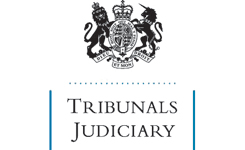|
Notes:
|
Reported as [2010] AACR 29.
Industrial accident – cardiac arrest at work caused by stress – whether necessary to show that injury resulted from a separate external event
The claimant suffered a cardiac arrest at work following a period of sustained pressure at work. The Secretary of State refused to make a declaration of industrial accident on the ground that it had not been established that there was either an event which in itself was identifiable as an accident or a particular occasion on which personal injury was suffered by the claimant which would constitute an accident. The claimant’s appeal to an appeal tribunal was dismissed and he appealed to a Social Security Commissioner. The Commissioner accepted that Chief Adjudication Officer v Faulds [2000] 1 WLR 1035, also reported as R(I) 1/00, had established that “accident” and “injury” must be treated as conceptually distinct, so that “injury caused by accident” could not be treated as meaning the same as “accidental injury”. However, referring in particular to Fenton v J Thorley and Co Ltd [1903] AC 443 and Clover, Clayton & Co Ltd v Hughes [1910] AC 242 decided under the Workmen’s Compensation Acts, he held that, if a claimant suffered an injury which was of an expected type, it was necessary for him to show there was an “accident” which caused or contributed to the injury whereas, if the injury was of an unexpected type, there was nothing in Faulds which required him to show in addition that his injury was caused by some identifiable and exceptional event. The injury suffered by the claimant constituted an unlooked-for mishap or untoward event and, provided that the claimant’s cardiac arrest had the necessary causal connection with his work, it was properly to be regarded as an accident, even though it occurred in the normal course of the claimant’s duties and was not preceded by any abnormal event. The Commissioner further found that the pressure at work had probably contributed to the claimant’s cardiac arrest and he therefore found that he had suffered an industrial accident. The Secretary of State appealed to the Court of Appeal.
Held, allowing the appeal and restoring the appeal tribunal’s decision, that:
1. the statements of principle in Faulds, maintaining the distinction between “accident” and “injury”, were inconsistent with the assertion that an unexpected cardiac arrest was itself an “accident” within the meaning of section 94(1) of the Social Security Contributions and Benefits Act 1992 (paragraphs 20, 27 and 28);
2. (per Etherton and Aikens LJJ) although earlier authorities might appear to support the proposition of the Commissioner that the “time-honoured” definition of “accident” for the purposes of the Workmen’s Compensation Acts was “an unlooked-for mishap or an untoward event which is neither expected or designed”, there was, even before Faulds, a clear line of House of Lords’ authority from Fife Coal Co Ltd v Young [1940] AC 479 onwards in which judges had insisted on the distinction between the “accident”, which must be external, and the resulting “injury” to the claimant, whether the type of personal injury suffered by the claimant was of an expected type or an unexpected type, and therefore the Commissioner had erred and the question he ought to have asked, in the light of those cases and Faulds, was whether an external event or series of events (allied or not to some action by the claimant) had some physiological or psychological effect on the claimant and in this case there was no evidence that any external event had caused the cardiac arrest (paragraphs 27, 40, 49, 53 and 54);
3. (obiter) the Commissioner’s finding that the cardiac arrest had been caused by exceptional pressures at work might have been sustainable but counsel for the claimant was wrong to suggest that it was required by the application of section 94(3) of the 1992 Act, which deems an accident in the course of employment to arise out of that employment in the absence of evidence to the contrary, since there was evidence capable of being evidence to the contrary (R v National Insurance (Industrial Injuries) Commissioner, ex parte Richardson [1958] 1 WLR 851, also reported as a note to R(I) 21/58, applied) (paragraphs 23 to 25, 27 and 55).
|
